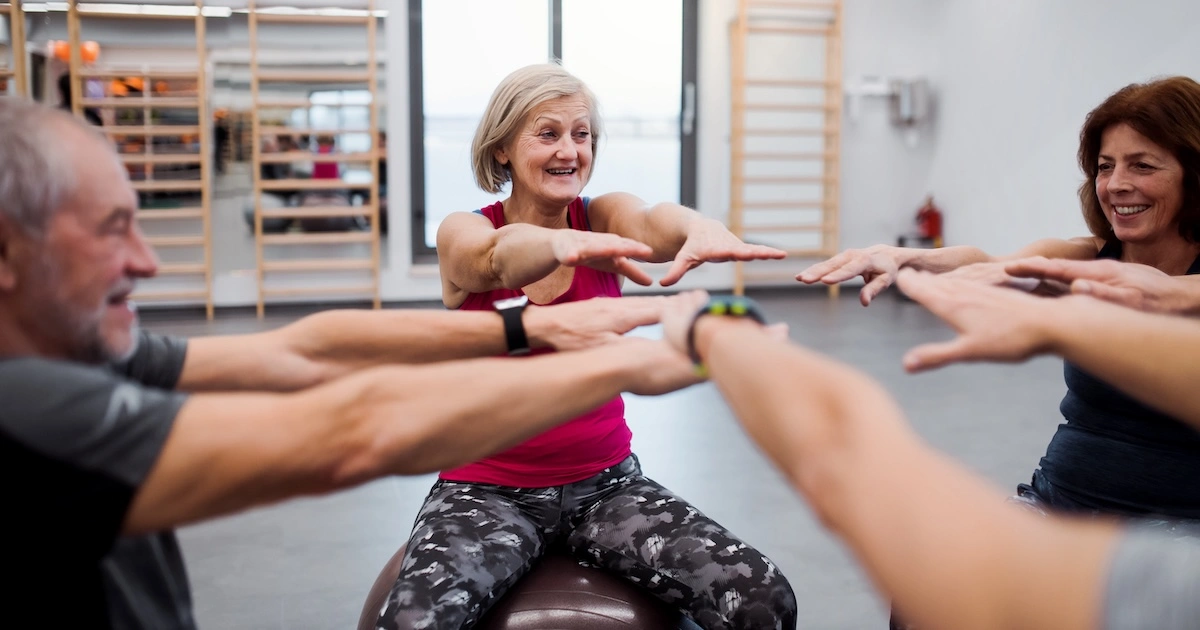Aging is a natural part of life, but staying active and independent allows you to enjoy it to the fullest. With the right habits, you can maintain mobility, strength, and confidence well into your golden years. Whether you’re looking to boost your energy, improve your overall well-being, or remain self-sufficient, these essential tips will help you embrace healthy aging with ease.
1. Prioritize Physical Activity

Staying physically active is one of the most effective ways to promote independence as you age. Regular movement helps keep your muscles strong, improves balance, and supports heart health.
- Walk Daily: A simple 30-minute walk can boost circulation and maintain mobility.
- Incorporate Strength Training: Light weightlifting or resistance band exercises help maintain muscle mass and bone density.
- Try Balance and Flexibility Exercises: Yoga and Tai Chi can improve stability, reducing the risk of falls.
- Stay Active in Daily Life: Gardening, dancing, or even light housework can keep you moving without feeling like a workout.
2. Eat a Nutrient-Dense Diet

Your body needs proper fuel to stay strong and energized. Focus on whole, nutrient-rich foods to support your overall health.
- Choose Whole Foods: Fresh fruits, vegetables, whole grains, and lean proteins provide essential vitamins and minerals.
- Prioritize Protein: Maintain muscle strength with eggs, fish, poultry, beans, and dairy.
- Stay Hydrated: Dehydration can lead to fatigue and confusion—drink plenty of water throughout the day.
- Limit Processed Foods: Cut back on high-sodium and sugary foods that can contribute to chronic conditions.
3. Keep Your Mind Sharp

Cognitive health is just as important as physical health when it comes to aging well. Keeping your mind engaged helps maintain memory and focus.
- Challenge Your Brain: Try puzzles, reading, or learning a new language.
- Stay Socially Engaged: Conversations with friends and family keep your mind active and sharp.
- Practice Mindfulness: Meditation and deep breathing reduce stress and support mental clarity.
- Lifelong Learning: Take up a new hobby, attend a class, or explore topics that interest you.
4. Maintain Strong Social Connections

Social interactions are key to emotional well-being and independence. Staying connected with loved ones and engaging with your community can boost happiness and reduce stress.
- Join Clubs or Groups: Participate in a book club, gardening group, or senior fitness class.
- Volunteer: Helping others brings purpose and keeps you involved in your community.
- Stay in Touch with Family and Friends: Regular calls, visits, or video chats help maintain close relationships.
- Engage in Intergenerational Activities: Spending time with younger generations can be uplifting and energizing.
5. Get Regular Health Checkups

Preventive healthcare is essential to catching potential issues early and maintaining overall well-being.
- Schedule Routine Checkups: Regular visits to your doctor help monitor key health markers.
- Stay Up to Date with Screenings: Get checked for blood pressure, cholesterol, vision, hearing, and other age-related concerns.
- Manage Chronic Conditions: Follow your healthcare provider’s advice to keep diabetes, heart disease, or arthritis under control.
- Prioritize Dental and Eye Care: Maintaining good oral and vision health supports overall quality of life.
6. Create a Safe Living Environment

Your home should be a place where you feel comfortable and secure. Making small adjustments can prevent accidents and ensure your continued independence.
- Reduce Fall Risks: Install grab bars in bathrooms, use non-slip rugs, and ensure proper lighting throughout your home.
- Keep Frequently Used Items Accessible: Arrange your home so that essentials are within easy reach.
- Consider Assistive Devices: Canes, walkers, and other aids can enhance mobility and safety.
- Have an Emergency Plan: Ensure you have a way to call for help if needed, such as a medical alert system.
7. Prioritize Rest and Recovery

Sleep is crucial for maintaining physical and mental health, yet many seniors struggle with sleep disturbances.
- Establish a Relaxing Bedtime Routine: Try reading or light stretching before bed.
- Limit Caffeine and Screen Time: Reduce stimulants in the evening to promote better sleep.
- Create a Comfortable Sleep Environment: A supportive mattress, blackout curtains, and a cool temperature can enhance sleep quality.
- Nap Smartly: Short naps can be refreshing but avoid long naps that may interfere with nighttime sleep.
Final Thoughts: Embrace Healthy Aging with Confidence
Aging well is about making choices that support your overall health, happiness, and independence. By staying active, eating well, keeping your mind sharp, and maintaining social connections, you can continue to live life to the fullest.
What’s Your Next Step?
Which of these tips will you start incorporating into your routine today? Healthy aging starts with small, consistent steps—choose one and make it a habit!















